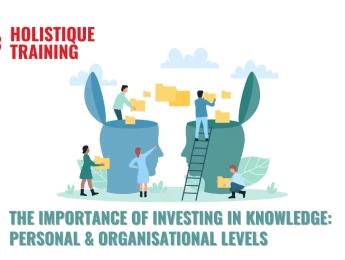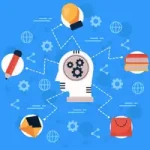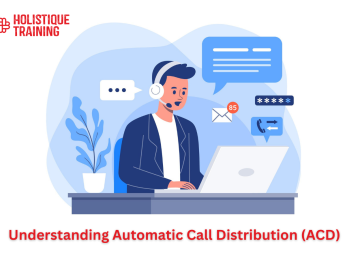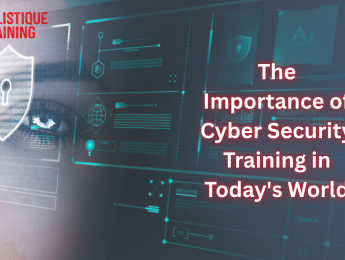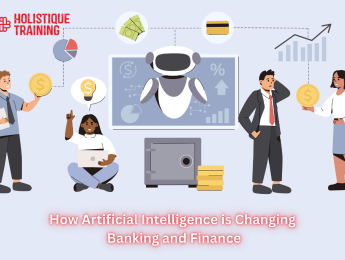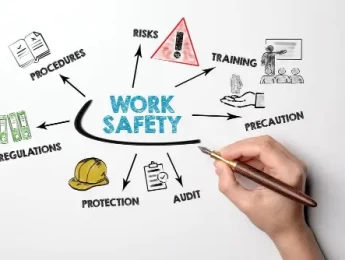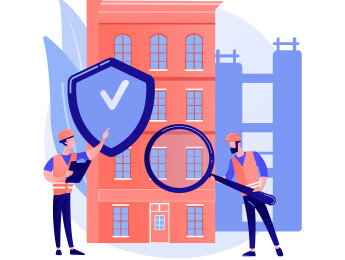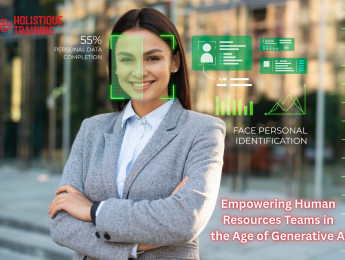- Table of Contents
- Introduction
- What is Knowledge?
- Why is Investing in Knowledge Important?
- 1. Enhances Decision-Making
- 2. Promotes Adaptability
- 3. Drives Innovation
- 4. Improves Competitiveness
- 5. Increases Personal Satisfaction
- 6. Fosters Collaboration
- 7. Supports Career Advancement
- 8. Enriches Society
- 9. Facilitates Lifelong Learning
- 10. Enhances Well-Being
- 11 Ways to Gain Knowledge
- 1. Formal Education
- 2. Online Learning Platforms
- 3. Reading Books and Articles
- 4. Podcasts and Audiobooks
- 5. Workshops and Seminars
- 6. Networking and Mentorship
- 7. Hands-On Experience
- 8. Discussion Groups and Study Circles
- 9. Online Forums and Communities
- 10. Documentaries and Educational Videos
- 11. Self-Directed Learning
- How Online Learning is Helping Us Gain More Knowledge
- 1. Accessibility and Convenience
- 2. Diverse Course Offerings
- 3. Interactive Learning Experiences
- 4. Personalised Learning Paths
- 5. Global Learning Community
- 6. Expert Instructors and Industry Professionals
- 7. Cost-Effectiveness
- 8. Continuous Learning Opportunities
- 9. Increased Motivation and Self-Discipline
- 10. Integration of Cutting-Edge Technology
- 11. Facilitation of Lifelong Learning
- What is Knowledge Management?
- Why are Organisations Investing in Knowledge Management?
- Increased Complexity:
- Competitive Advantage:
- Talent Management:
- Efficiency Improvements:
- Enhanced Collaboration:
- Crisis Management:
- Customer Satisfaction:
- Long-Term Sustainability:
- Data-Driven Decision Making:
- Innovation and Growth:
- How to Develop a Knowledge Management Protocol at Your Organisation
- 1. Assess Current Knowledge Practices
- 2. Define Knowledge Management Objectives
- 3. Establish a Knowledge Management Team
- 4. Identify Knowledge Assets
- 5. Select Knowledge Management Tools and Technologies
- 6. Develop Knowledge Sharing Processes
- 7. Encourage a Culture of Continuous Learning
- 8. Implement Knowledge Retention Strategies
- 9. Evaluate and Measure Effectiveness
- 10. Communicate and Promote the KM Protocol
- 11. Foster Leadership Support
- Conclusion
Introduction
The journey toward personal and professional growth hinges significantly on acquiring and managing knowledge. The concept of investing in knowledge transcends mere formal education; it encompasses a broader understanding of the value of lifelong learning, the strategies for acquiring new information, and the mechanisms organisations employ to manage and leverage knowledge. This blog post will explore the essence of knowledge, the significance of investing in it, practical methods for gaining knowledge, the impact of online learning, the principles of knowledge management, and how organisations can effectively implement knowledge management protocols.
What is Knowledge?
Knowledge is a multifaceted concept encompassing facts, information, skills, and insights acquired through experience or education. It exists in various forms, including explicit knowledge, which is easily articulated, documented, and shared, and tacit knowledge, which is more intuitive, personal, and challenging to communicate. Knowledge can be categorised further into several types, including:
- Declarative Knowledge: Understanding facts and information (e.g., knowing historical dates).
- Procedural Knowledge: Knowing how to perform tasks (e.g., riding a bicycle).
- Contextual Knowledge: Insights gained from understanding the environment and circumstances surrounding a particular event or situation.
- Experiential Knowledge: Knowledge acquired through direct experience and reflection.
Investing in knowledge involves recognising its value and actively seeking to enhance one’s understanding and capabilities in various domains. This investment enriches individual lives and drives innovation and progress in society as a whole.
Why is Investing in Knowledge Important?
Investing in knowledge is vital for personal growth, professional development, and the advancement of society as a whole. The significance of this investment is multifaceted, touching upon various dimensions of life and work. Below, we delve deeper into the reasons why investing in knowledge is crucial, exploring its impact on individuals, organisations, and communities.
1. Enhances Decision-Making
Knowledge serves as a foundation for effective decision-making. When well-informed, individuals can analyse situations from multiple perspectives and consider various alternatives before concluding. This informed approach minimises the risk of making hasty or uninformed choices, leading to better outcomes in both personal and professional contexts. For example, a manager who understands market trends and consumer behaviour is better equipped to make strategic decisions that align with organisational goals.
2. Promotes Adaptability
In today’s rapidly changing world, adapting to new circumstances is crucial. Knowledge empowers individuals to navigate uncertainty and embrace change with confidence. Those who continuously invest in learning can readily acquire new skills and knowledge, making it easier to pivot in response to evolving challenges and opportunities. This adaptability is particularly valuable in industries that undergo frequent transformations, such as technology and healthcare.
3. Drives Innovation
Knowledge is the cornerstone of innovation. Organisations that foster a culture of continuous learning encourage employees to explore new ideas and approaches. When equipped with diverse knowledge, individuals can think creatively and develop innovative solutions to problems. For instance, a team that combines expertise from different fields can generate groundbreaking ideas that would not have emerged in isolation. Investing in knowledge stimulates intellectual curiosity, leading to a cycle of creativity and innovation.
4. Improves Competitiveness
Organisations prioritising knowledge investment in a competitive business landscape gain a significant advantage. A knowledgeable workforce is more agile and capable of responding swiftly to market demands and customer needs. Companies emphasising continuous learning and skill development can improve operational efficiency, enhance product quality, and provide superior customer service. As a result, they are better positioned to outperform competitors and thrive in their respective markets.
5. Increases Personal Satisfaction
On an individual level, pursuing knowledge contributes to personal fulfilment and satisfaction. Engaging in learning experiences opens new horizons, broadening one’s understanding of the world and fostering a sense of accomplishment. This pursuit can lead to a greater sense of purpose as individuals discover new passions and interests. Moreover, lifelong learners often experience heightened levels of confidence and self-esteem, knowing they possess valuable skills and knowledge.
6. Fosters Collaboration
Knowledge sharing within organisations promotes collaboration and teamwork. When individuals share insights and expertise, it leads to collective intelligence that can address complex challenges more effectively. Collaborative environments encourage open communication and exchanging ideas, fostering a sense of community and belonging among employees. This culture of collaboration enhances team performance and leads to improved problem-solving and innovation.
7. Supports Career Advancement
Investing in knowledge is essential for career progression. Professionals who continuously update their skills and knowledge are more likely to be recognised for their contributions and considered for promotions and leadership roles. Many employers value candidates committed to lifelong learning, as it indicates adaptability and a proactive approach to personal development. By investing in knowledge, individuals position themselves as valuable assets within their organisations and the job market.
8. Enriches Society
A society that values knowledge contributes to informed citizenship and civic engagement. Knowledge-educated individuals are more likely to participate in community activities, advocate for social change, and engage in meaningful discussions about public issues. This engagement fosters a healthier democracy, as informed citizens can hold leaders accountable and contribute to the decision-making processes that shape their communities. Investing in knowledge ultimately benefits society by promoting critical thinking and informed participation.
9. Facilitates Lifelong Learning
The commitment to investing in knowledge cultivates a mindset of lifelong learning. Individuals prioritising education and self-improvement are more likely to seek new learning opportunities throughout their lives. This continuous pursuit of knowledge enriches personal experiences, enhances skills, and fosters adaptability. Lifelong learners are better equipped to navigate the complexities of modern life and career challenges as they enthusiastically embrace change and new opportunities.
10. Enhances Well-Being
Investing in knowledge is beneficial for career and intellectual development and contributes to overall well-being. Engaging in learning activities can stimulate mental health by promoting cognitive function and emotional resilience. Furthermore, knowledge acquisition fosters social connections as individuals engage with peers and mentors during their learning journeys. This social aspect of learning can combat feelings of isolation and enhance overall life satisfaction.
The importance of investing in knowledge is evident across various dimensions of life. From enhancing decision-making and promoting adaptability to driving innovation and enriching society, knowledge is a powerful asset that benefits individuals, organisations, and communities alike. As the world continues to evolve, the commitment to lifelong learning and knowledge investment will play a pivotal role in shaping a brighter, more informed future. Whether through formal education, self-directed learning, or knowledge-sharing initiatives, the act of investing in knowledge is an essential endeavour that yields profound and lasting benefits.
11 Ways to Gain Knowledge
Investing in knowledge can take various forms, and individuals can explore multiple avenues to expand their understanding and skills. Here are eleven effective ways to gain knowledge:
1. Formal Education
Formal education remains one of the most structured and recognised paths to gaining knowledge. Pursuing a degree or certification from an accredited institution provides foundational knowledge in a specific field and opens doors to networking opportunities and resources. Formal education often combines theoretical learning with practical applications, helping learners to understand complex concepts. Beyond traditional degree programs, short courses, workshops, and online classes offered by universities can also be valuable for gaining specialised knowledge.
2. Online Learning Platforms
The rise of technology has revolutionised the way we learn. Online learning platforms likeHolistique Training, offer a vast array of courses covering diverse subjects. These platforms provide flexibility, allowing learners to study at their own pace and convenience. Online learning can include video lectures, quizzes, and interactive assignments, making it an engaging way to absorb new information. Many platforms also offer courses taught by industry experts, providing insights into real-world applications of knowledge.
3. Reading Books and Articles
Books are timeless sources of knowledge. Reading broadens one’s perspective and enhances critical thinking and comprehension skills. Delving into non-fiction works, academic journals, and reputable articles allows individuals to explore various topics in depth. Diverse genres, including biographies, history, science, and self-help, provide valuable insights and lessons. Setting a reading goal, such as several monthly books, can encourage consistent learning and personal growth.
4. Podcasts and Audiobooks
For those who prefer auditory learning, podcasts and audiobooks are excellent alternatives. These mediums cover various topics, from personal development and business to science and culture. Listening to podcasts while commuting or exercising can make productive use of time and expose listeners to expert interviews, discussions, and diverse viewpoints. Audiobooks allow for immersive storytelling, enabling individuals to gain knowledge in an engaging format, particularly for those with busy schedules.
5. Workshops and Seminars
Participating in workshops and seminars provides opportunities for hands-on learning and direct interaction with experts. These events often focus on specific skills or topics, allowing attendees to dive deeply into subjects of interest. Workshops may include practical exercises, group discussions, and collaborative projects, fostering a dynamic learning environment. Attending industry conferences and seminars can also facilitate networking with professionals and gain insights into current trends and challenges.
6. Networking and Mentorship
Building connections with knowledgeable individuals can significantly enhance one’s learning journey. Networking provides access to new ideas, experiences, and resources. Engaging with peers and industry professionals can lead to valuable discussions and insights that may not be found in traditional educational settings. Finding a mentor who has expertise in a specific area can offer personalised guidance, support, and encouragement, further accelerating knowledge acquisition and professional growth.
7. Hands-On Experience
Practical experience is one of the most effective ways to gain knowledge. Internships, volunteering, and job shadowing allow individuals to apply theoretical concepts in real-world situations. Engaging in hands-on work enables learners to develop skills, understand processes, and gain insights that are often unattainable through traditional learning. This experiential learning reinforces knowledge retention and enhances problem-solving abilities, preparing individuals for future challenges.
8. Discussion Groups and Study Circles
Collaborative learning environments, such as discussion groups or study circles, allow for exploring topics in-depth with others. Engaging in conversations about specific subjects fosters critical thinking and encourages diverse viewpoints. Group discussions promote knowledge sharing, as participants can challenge each other’s perspectives and deepen their understanding. Creating a safe and open space for dialogue enhances learning outcomes and can lead to lasting connections.
9. Online Forums and Communities
The internet hosts many online forums and communities dedicated to specific interests or fields. Participating in these platforms allows individuals to ask questions, share knowledge, and learn from others’ experiences. Websites like Reddit, Quora, and specialised forums provide a space for knowledge exchange, enabling users to tap into collective wisdom. Engaging in these communities can spark new ideas, provide resources, and facilitate discussions on current topics.
10. Documentaries and Educational Videos
Visual media can be a powerful tool for learning. Documentaries and educational videos provide in-depth exploration of various subjects, from history and science to art and culture. These formats often combine storytelling with expert insights, making complex topics accessible and engaging. Platforms like YouTube and streaming services offer a wealth of content, allowing learners to explore new areas of interest at their own pace.
11. Self-Directed Learning
Taking the initiative for your own learning journey is crucial in gaining knowledge. Self-directed learning involves setting personal goals, identifying resources, and creating a structured plan for acquiring new information. This approach encourages independence and accountability, as learners take ownership of their education. By embracing curiosity and exploring topics of interest, individuals can tailor their learning experiences to align with their personal and professional aspirations.
The journey of acquiring knowledge is diverse and multifaceted, encompassing various methods that cater to different learning styles and preferences. By exploring these 11 effective strategies, individuals can enhance their knowledge base, foster personal and professional growth, and ultimately empower themselves to thrive in an ever-evolving world. Whether through formal education, hands-on experience, or self-directed learning, pursuing knowledge is a lifelong endeavour that yields immeasurable benefits. Embracing these avenues will enrich one’s understanding of the world and contribute to a more informed and engaged society.
How Online Learning is Helping Us Gain More Knowledge
Online learning has transformed the educational landscape, providing unprecedented access to knowledge and resources for individuals around the globe. This mode of education leverages technology to deliver information in engaging and interactive ways, making learning more accessible, flexible, and personalised. Below, we explore the various ways online learning is facilitating knowledge acquisition.
1. Accessibility and Convenience
One of the most significant advantages of online learning is its accessibility. Individuals can access courses and materials from anywhere in the world, provided they have an internet connection. This flexibility allows learners to study at their own pace and on their own schedules, eliminating barriers such as geographic location or time constraints. Whether in a rural area or a bustling city, anyone can enrol in courses that were previously limited to specific institutions or regions.
2. Diverse Course Offerings
Online learning platforms offer a vast array of courses covering nearly every subject imaginable. From traditional academic disciplines like mathematics and science to niche topics such as digital marketing or sustainable agriculture, learners have countless options to choose from. This diversity allows individuals to pursue interests outside their formal education or career paths, fostering a more well-rounded and enriched knowledge base.
3. Interactive Learning Experiences
Many online courses utilise multimedia elements, such as videos, infographics, quizzes, and discussion forums, to create engaging learning experiences. This interactivity enhances knowledge retention and comprehension, as learners can engage with the material in various formats. For example, simulations and virtual labs in science courses enable students to experiment and apply concepts in a controlled environment, reinforcing their understanding of complex theories.
4. Personalised Learning Paths
Online learning platforms often incorporate adaptive learning technologies that tailor the educational experience to individual needs. Learners can progress at their own pace, revisit challenging concepts, and skip over material they already understand. This personalised approach accommodates different learning styles, ensuring that each student can absorb information in a manner that best suits them. Furthermore, many platforms offer assessments and feedback, allowing learners to track their progress and make necessary adjustments to their study habits.
5. Global Learning Community
The internet has enabled the formation of global learning communities, where individuals from diverse backgrounds and cultures come together to share knowledge and experiences. Online forums, discussion boards, and collaborative projects facilitate interaction among learners, encouraging the exchange of ideas and perspectives. This exposure to diverse viewpoints enriches the learning experience, fostering critical thinking and a deeper understanding of global issues.
6. Expert Instructors and Industry Professionals
Many online courses are taught by experienced instructors and industry professionals who bring real-world expertise to the virtual classroom. This access to knowledgeable educators enhances the learning experience, as students can benefit from their insights and experiences. Guest speakers and webinars often feature thought leaders who provide unique perspectives on current trends and developments in various fields. Learners can gain practical knowledge directly applicable to their careers or personal interests.
7. Cost-Effectiveness
Online learning often presents a more affordable alternative to traditional education. Many platforms offer free courses or low-cost options, making education accessible to a broader audience. Additionally, learners can save on commuting and accommodation costs typically associated with attending physical classes. This cost-effectiveness enables individuals from various economic backgrounds to pursue their educational goals without incurring significant financial burdens.
8. Continuous Learning Opportunities
The rapid pace of change in today’s job market necessitates continuous learning and skill development. Online learning platforms provide opportunities for individuals to upskill or re-skill as needed. Professionals can enrol in courses to stay current with industry trends or learn new technologies that enhance their employability. This ongoing commitment to education helps individuals adapt to the evolving demands of their careers and maintain their competitiveness in the workforce.
9. Increased Motivation and Self-Discipline
Engaging in online learning requires a level of self-motivation and discipline. Unlike traditional classroom settings, where instructors guide students through the curriculum, online learners must take the initiative to manage their time and stay committed to their studies. This self-directed approach fosters essential skills such as time management, goal setting, and accountability. As learners navigate their educational journeys independently, they often develop a greater sense of ownership over their learning, resulting in increased motivation to succeed.
10. Integration of Cutting-Edge Technology
Online learning frequently incorporates the latest technological advancements, enhancing the educational experience. Tools such as virtual reality (VR), augmented reality (AR), and gamification create immersive learning environments that captivate learners’ attention. These technologies make learning more enjoyable and facilitate deeper engagement with the material. For example, VR can simulate real-world scenarios, allowing students to practise skills in a safe and controlled setting.
11. Facilitation of Lifelong Learning
Online learning promotes the concept of lifelong learning by making education accessible at any stage of life. Whether someone seeks to enhance their skills for career advancement, explore a new hobby, or fulfil personal interests, online courses provide the flexibility to pursue education continuously. This commitment to lifelong learning fosters a culture of curiosity and intellectual growth, empowering individuals to stay informed and engaged throughout their lives.
Online learning has significantly transformed how we acquire knowledge, making education more accessible, diverse, and engaging. By leveraging technology, learners can explore various subjects, interact with global communities, and benefit from personalised learning experiences. The advantages of online education extend beyond traditional learning, empowering individuals to take charge of their educational journeys and embrace lifelong learning. As technology continues to evolve, the potential for online learning to enhance knowledge acquisition will only grow, paving the way for a more informed and knowledgeable society.
What is Knowledge Management?
Knowledge management (KM) is a systematic approach to creating, sharing, using, and managing knowledge and information within an organisation. The goal of KM is to enhance organisational performance by leveraging collective knowledge to drive innovation, improve decision-making, and foster a culture of continuous learning.
KM encompasses various processes, including:
- Knowledge Creation: Developing new insights, ideas, or products based on existing knowledge and experiences.
- Knowledge Sharing: Disseminating knowledge across the organisation ensures everyone has access to valuable information.
- Knowledge Utilisation: Applying knowledge to enhance processes, solve problems, and make informed decisions.
- Knowledge Retention: Ensuring that critical knowledge is preserved within the organisation, especially when employees leave or retire.
- Knowledge Innovation: Using knowledge to drive innovation and adapt to changing market conditions.
Effective knowledge management fosters a culture of prioritising learning and sharing, ultimately improving organisational performance and adaptability.
KPI | Description |
Knowledge Retention Rate | Measures the percentage of knowledge retained. |
User Engagement Level | Tracks employee participation in knowledge sharing. |
Time to Find Information | Measures the average time to access knowledge. |
Training Completion Rate | Percentage of employees completing training programs. |
Innovation Rate | Evaluates the frequency of new ideas implemented. |
Table: KPIs of Knowledge Management
Why are Organisations Investing in Knowledge Management?
Organisations recognise the value of knowledge management as a means to enhance productivity, competitiveness, and innovation. Several factors drive this investment:
Increased Complexity:
As businesses face increasingly complex challenges, the need for a structured approach to managing knowledge becomes essential. KM helps organisations navigate complexity by providing clear frameworks for knowledge sharing and utilisation.
Competitive Advantage:
Organisations that effectively manage their knowledge resources in a knowledge-driven economy can gain a competitive edge. Companies that harness knowledge for innovation and decision-making are better positioned to outperform their competitors.
Talent Management:
Knowledge management supports talent development by providing employees with the tools and resources they need to grow their skills and expertise. Organisations that invest in KM can attract and retain top talent.
Efficiency Improvements:
Organisations can reduce redundancy and improve efficiency by streamlining knowledge sharing and processes. KM enables employees to quickly access the information they need, leading to faster decision-making.
Enhanced Collaboration:
Knowledge management fosters a collaborative culture, encouraging teamwork and knowledge sharing. Collaborative environments lead to better problem-solving and innovative solutions.
Crisis Management:
Effective KM allows organisations to respond quickly and adapt to new circumstances during crises or change. Access to collective knowledge can guide decision-making in uncertain situations.
Customer Satisfaction:
Organisations that leverage knowledge management can provide better customer service. Knowledge sharing among employees ensures that customers receive accurate and timely information.
Long-Term Sustainability:
Knowledge management contributes to organisations' long-term sustainability by ensuring that critical knowledge is retained and passed on to future generations of employees.
Data-Driven Decision Making:
Effective KM allows organisations to utilise data and insights for informed decision-making. Organisations that harness knowledge can identify trends, predict challenges, and seize opportunities.
Innovation and Growth:
Investing in knowledge management encourages a culture of innovation. Organisations that promote knowledge sharing are more likely to develop new products, services, and processes.
How to Develop a Knowledge Management Protocol at Your Organisation
Implementing an effective knowledge management (KM) protocol is essential for organisations aiming to leverage their collective knowledge and foster a culture of continuous learning. A well-structured KM protocol ensures that valuable information is captured, shared, and utilised efficiently, leading to enhanced decision-making and innovation. Here’s a detailed guide on how to develop a comprehensive knowledge management protocol within your organisation.
1. Assess Current Knowledge Practices
Before establishing a KM protocol, assessing your organisation’s existing knowledge management practices is vital. This involves evaluating how knowledge is currently created, stored, shared, and utilised. Conduct surveys or interviews with employees to understand their perceptions of knowledge sharing within the organisation. Identify gaps in knowledge flow and areas where information is siloed. This assessment will serve as a foundation for designing a protocol that addresses your organisation's specific needs and challenges.
2. Define Knowledge Management Objectives
Clearly defined objectives are critical to the success of a KM protocol. Determine what you aim to achieve through knowledge management, such as improving collaboration, enhancing innovation, increasing efficiency, or preserving institutional knowledge. Involve stakeholders from different departments to ensure that the objectives align with the organisation's overall goals. These objectives will guide the development and implementation of the KM protocol, ensuring that it addresses the unique needs of your workforce.
3. Establish a Knowledge Management Team
Forming a dedicated knowledge management team is crucial for overseeing the development and implementation of the KM protocol. This team should consist of representatives from various departments to ensure diverse perspectives and expertise. Designate a KM leader or manager responsible for driving the initiative, coordinating activities, and fostering a culture of knowledge sharing. This team will be instrumental in developing strategies, tools, and processes for effective knowledge management within the organisation.
4. Identify Knowledge Assets
Understanding what knowledge assets exist within your organisation is vital for effective management. Knowledge assets can include documents, reports, research papers, best practices, and employee expertise. Create an inventory of these assets, categorising them based on their relevance, importance, and accessibility. This inventory will help identify key knowledge sources and inform decisions about what knowledge should be prioritised in the KM protocol.
5. Select Knowledge Management Tools and Technologies
Implementing the right tools and technologies facilitates knowledge sharing and collaboration. Consider using knowledge management software, collaboration platforms, or intranet systems that allow employees to access and contribute to knowledge repositories easily. These tools should support various formats, including documents, videos, and discussions. Ensure the chosen tools are user-friendly and align with your organisation's needs. Training on using these tools effectively will enhance employee engagement and adoption. Moreover, Deloitte discovered that an effectively implemented intranet tool can enhance employee culture by 15-20%. This improvement in employee culture is associated with a 36% increase in employee productivity.
6. Develop Knowledge Sharing Processes
Establishing clear knowledge-sharing processes ensures that valuable information flows seamlessly throughout the organisation. This may include creating guidelines for documenting best practices, conducting regular knowledge-sharing sessions, or implementing mentorship programs where experienced employees can share their insights with newer team members. Encourage a culture of openness where employees feel comfortable sharing their knowledge and experiences. Recognise and reward contributions to knowledge sharing to foster continued participation.
7. Encourage a Culture of Continuous Learning
Promoting a culture of continuous learning is vital for successful knowledge management. Encourage employees to seek out new knowledge, share their expertise, and collaborate with colleagues. This can be achieved through training programs, workshops, or lunchtime learning sessions where employees can present on topics of interest. Foster an environment where learning is valued and integrated into daily work processes. Encourage employees to take ownership of their professional development and actively participate in knowledge-sharing initiatives.
8. Implement Knowledge Retention Strategies
Knowledge retention is crucial for preserving valuable institutional knowledge, especially in organisations with high turnover rates. Develop strategies to capture knowledge from departing employees, such as exit interviews or knowledge transfer sessions. Create documentation that outlines critical processes, lessons learned, and best practices to ensure that knowledge is not lost when employees leave. Consider implementing mentorship programs where experienced employees can pass on their knowledge to newer team members, facilitating a smoother transition.
9. Evaluate and Measure Effectiveness
Regularly evaluating the effectiveness of your KM protocol is essential for continuous improvement. Develop key performance indicators (KPIs) to assess how well knowledge is being managed and shared within the organisation. This may include metrics such as the number of contributions to knowledge repositories, employee engagement in knowledge-sharing activities, or improvements in project outcomes. Solicit employee feedback to identify areas for enhancement and ensure that the KM protocol remains aligned with organisational objectives.
10. Communicate and Promote the KM Protocol
Effective communication is vital for the successful implementation of a knowledge management protocol. Clearly articulate the benefits of knowledge management to employees, emphasising how it can enhance collaboration, innovation, and overall performance. Develop a communication plan that includes regular updates, training sessions, and promotional materials to raise awareness about the KM protocol. Encourage leaders and managers to model knowledge-sharing behaviours and actively promote participation in KM initiatives.
11. Foster Leadership Support
Leadership support is crucial for the success of any knowledge management initiative. Engage leaders at all levels to champion the KM protocol and demonstrate its importance to the organisation. Leaders should actively participate in knowledge-sharing activities, encourage their teams to contribute, and allocate resources for KM initiatives. When leadership prioritises knowledge management, it sends a powerful message about its value to the organisation, motivating employees to engage in knowledge-sharing practices.
Developing a knowledge management protocol within your organisation is a strategic initiative that can significantly enhance collaboration, innovation, and overall performance. By assessing current practices, defining objectives, and establishing clear processes, organisations can create an environment where knowledge is valued, shared, and leveraged effectively. As knowledge continues to be a critical asset in today’s rapidly changing business landscape, investing in a robust KM protocol is essential for long-term success and sustainability. Through ongoing evaluation and adaptation, organisations can ensure that their knowledge management efforts remain relevant and impactful, fostering a culture of continuous learning and growth.
Conclusion
Investing in knowledge is not merely an individual pursuit; it is a collective responsibility that extends to organisations and society as a whole. By prioritising knowledge acquisition and management, individuals can enrich their lives and enhance their careers, while organisations can foster innovation, collaboration, and sustained success. The journey of learning and knowledge sharing is ongoing, and those who embrace this journey will undoubtedly reap the rewards.
Consider enrolling in ourAdvancedKnowledgeManagement course to enhance your knowledge management skills further. This comprehensive program equips participants with the strategies and tools needed to implement effective knowledge management practices in their organisations. Join us to unlock the full potential of your team's collective intelligence and drive your organisation towards greater success.


